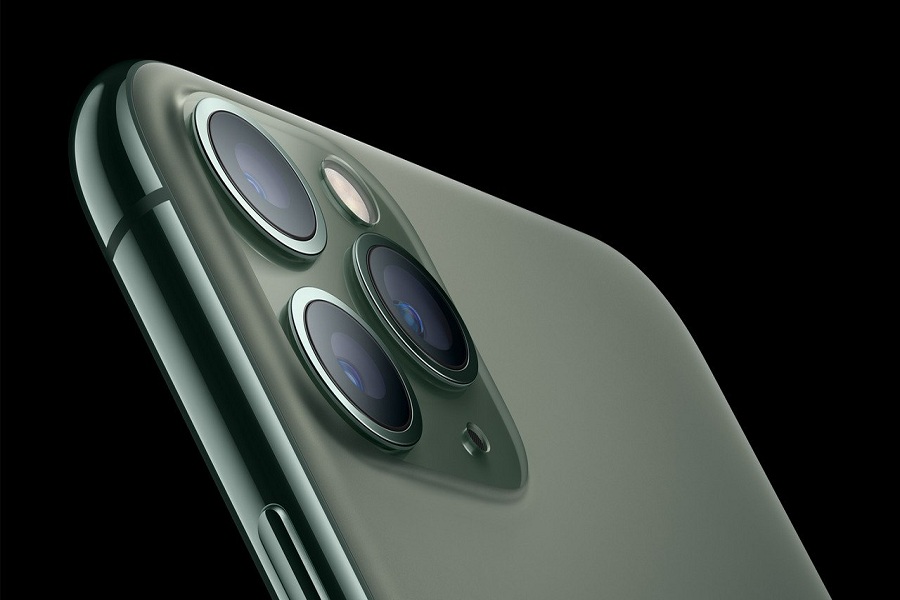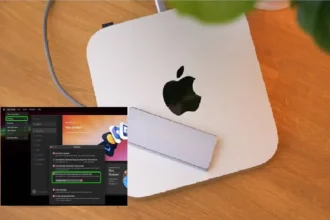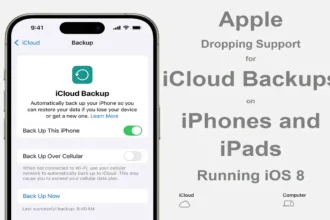Your smartphone functions as an extension of your brain, keeping all of your emails, internet activities, and other conversations. You might be concerned about company collecting your data to sell your activities, just like a snooping roommate who has a habit of side-eyeing your incoming messages, you just don’t want any random stranger to have access to everything in your life, isn’t it? When it comes to privacy, using a smartphone is always a high risk. Your mobile carrier constantly watches your every move, and it’s practically hard to determine what data each app collects and sells. However, everyone may take a few precautions to protect their privacy by changing some of the privacy setting.
When it comes to privacy and security, Apple’s products are the only option for it, without any doubt. There won’t be a long discussion about comparing Apple’s privacy and security settings to other products. As you may have known Apple have always provided several ways to safeguard your privacy when using an iPhone or iPad, but iOS 15 and iPadOS 15 include even more capabilities aimed at keeping you safe and protecting your data at all cost.
PRIVACY SETTINGS ON iPHONE 13/12/11 & OLDER MODELS
You can have complete control over what information you share!!
From the minute you open your new smartphone to the first time you install and use an app; privacy is built in from the start. The settings have been carefully crafted to provide you complete control over your data. You have control over what information is shared, where it is shared, and when it is backed up. And, beginning with iOS 14.5 and iPadOS 14.5, you have more control over how applications monitor you using your personal data.
HOW DOES PRIVACY ON AN IPHONE WORK?
Apple’s strict stand on iPhone privacy is comforting, since it gives you the tools you need to manage exactly what your applications know about you. You may revoke an app’s access to your location, camera, microphone, and other potentially sensitive data at any time.
Apps on iPhone may constantly request permission. If you download a camera app, it will require access to your camera in order to function. The 1st time you open app it will ask for permission through a pop up. You can also change these settings later as per your convenience.
This is how Apple intended for privacy to function on the iOS operating system. You must give access to information and services such as your location, camera, microphone, health data, and even your Apple Music library manually. Other applications, like as Reminders, Calendar, and Contacts, have also made privacy requests.
This was done by Apple to make it easier to handle your personal information. Not all applications require access to all they ask for in order to function. You may not want every app to send you push notifications, track your location, or listen in on your microphone.
However, this isn’t just about apps. Other essential options to consider are advertisement tracking, keyboard access, and browser privacy settings. The Privacy settings on your iPhone and iPad allow you to restrict which applications have access to different built-in functions such as your location, contacts, calendars, images, microphone, camera, health data, and more. You have the option of granting or denying any request for access to any service, as well as changing your mind and enabling or disabling them at any moment. You may also select whether to submit diagnostic and use data to Apple, as well as whether your usage is tracked so that advertising can be customised to what you watch online.
APP PERMSSION
When you download an app, it asks for permission to use hardware and system services such as the microphone, your location, the camera, and others. Some applications, for example, that don’t require location data to operate yet record it in order to sell it to marketing businesses along with other information they gather about you.Disable Precise Location for any programme that doesn’t require your specific location but may work with an approximate location, such as a weather app. The same is true with Bluetooth: Retail businesses have been discreetly using Bluetooth to track your whereabouts as you browse for years.
AUTOMATIC UPDATES: ENABLE
Both the operating system and the apps you install are often updated with security and privacy changes. Enabling automatic updates guarantees that such fixes are carried out in the background. tis settings make sure that only automatic update option is enables, rest any of the other option such as “automatic download” should be “Disabled.”
TRACKING & ANALYTICS IMPROVEMENT: DISABLE
Companies employ ad tracking to show you targeted advertising, but such customised campaigns based on marketing profiles can be off-putting. Apple and particular applications both collect a lot of information about you. Some applications may then sell the information they collect, frequently without your knowledge. You have the ability to halt part of this data sharing. Apart from disabling tracking apps option, you need to also disable Share iPhone Analytics, if you don’t want Apple to look into crash reports, iCloud difficulties, or Siri recordings. Analytics data contains a lot of information that you might not want to disclose, whether anonymously or not.
Apps that do not ask for your permission to monitor you may still do so, but this setting offers you a fighting chance.
System Services > iPhone Analytics: Disable.
System Services > Routing & Traffic: Disable.
PROTECT MAIL ACTIVITY: ENABLE
The iOS 15 and iPadOS 15 updates include a new privacy feature called Protect Mail Activity. Some emails include tracking technology that may notify the sender if you read their email. Such strategies are typically used primarily in newsletters or marketing emails, and they occur in the background, so you are unaware of them. You can disable some of this monitoring if you use Apple’s Mail app. By enabling this option, it will prevent the sender from seeing your IP address or knowing if you opened the email, your device’s IP address is concealed to conceal its location. Any external material from an email message load in the background secretly, so it cannot be used to track you. Keep in mind, though, that the sender may still monitor whether you click a link in an email.
SAFARI
Safari has a few options for adjusting your privacy settings without drastically affecting your web surfing experience. Default search engine for safari is Google, but if you need to go with safer option that choose DuckDuckGo as it doesn’t track your activities and also doesn’t target ads. Enable Prevent Cross- Site Tracking option, because this will stop some of the sites from tracking your internet activities. You may also enable option of Hide IP Address to trackers and other websites. Other Safari settings, such as Safari Suggestions, which transmits some search queries to Apple, including the location from where you searched (which you may block separately at Settings > Privacy > Location Services > System Services), may also be disabled. Other option in Safari settings is:
- Block Pop- Ups: Enable.
- Prevent Cross- Site Tracking: Enable.
- Hide IP Address: From Trackers: Enable
- Fraudulent Website Warning: Enable.
- Privacy Preserving Ad Measurement: Enable
PRECISE LOCATION: DISABLE
Apple do record your location and not just that, it also records the exact location of everywhere you have been. If you’re hesitant to share your exact location with some services but still need to utilize your device’s location services for certain functions, there is a workaround: provide just an estimate of that position. By disabling the precise location option, you will still be able to use location services, the only difference is that Apple won’t track and record your exact day to day location. Other option for preventing your exact location to be recorded is disabling significant location.
- System Services > Significant Location: Disable
- System Services > Location – Based Alert: Disable.
- System Services > Location – Based Suggestion: Disable.
PERSONALISED ADS: DISABLE
Apple no longer has a standalone advertising platform. The iAd platform was decommissioned in 2016. Apple does, however, continue to transmit targeted advertisements through several apps, including the App Store, Apple News, and the Stocks app. To avoid such transmission of app data sharing you need to disable this option.
APP PRIVACY REPORT: ENABLE
When you enable App Privacy Report, you can see what your applications have been up to in a look. A section in Settings displays how frequently your location, photographs, camera, microphone, and contacts have been accessed in the previous seven days. It also indicates which websites have been contacted by applications. This feature, in conjunction with Privacy Nutrition Labels, will provide you with a fuller view of how the applications you use respect your privacy.
These are some of the basic changes you need to make in your iPhone to protect your security and privacy. So, what are you waiting for do these changes today and use your iPhone without any worry of who might be keeping a track on your activity. If you have any other suggestion regarding this then do let us know in the comment section down below.
Until next time, with another topic. Till then, Toodles.






